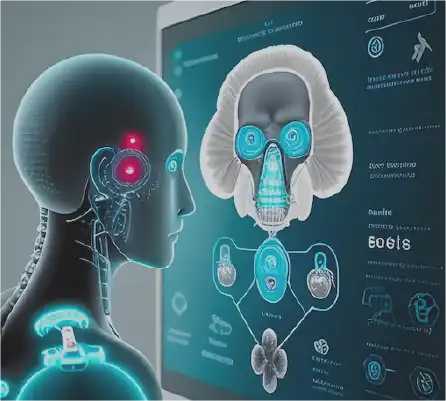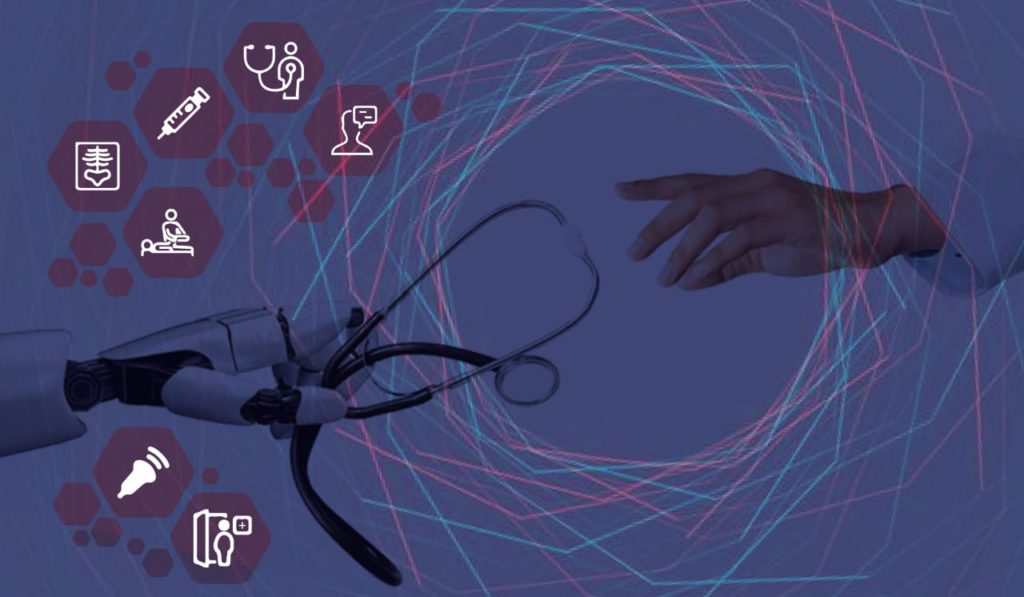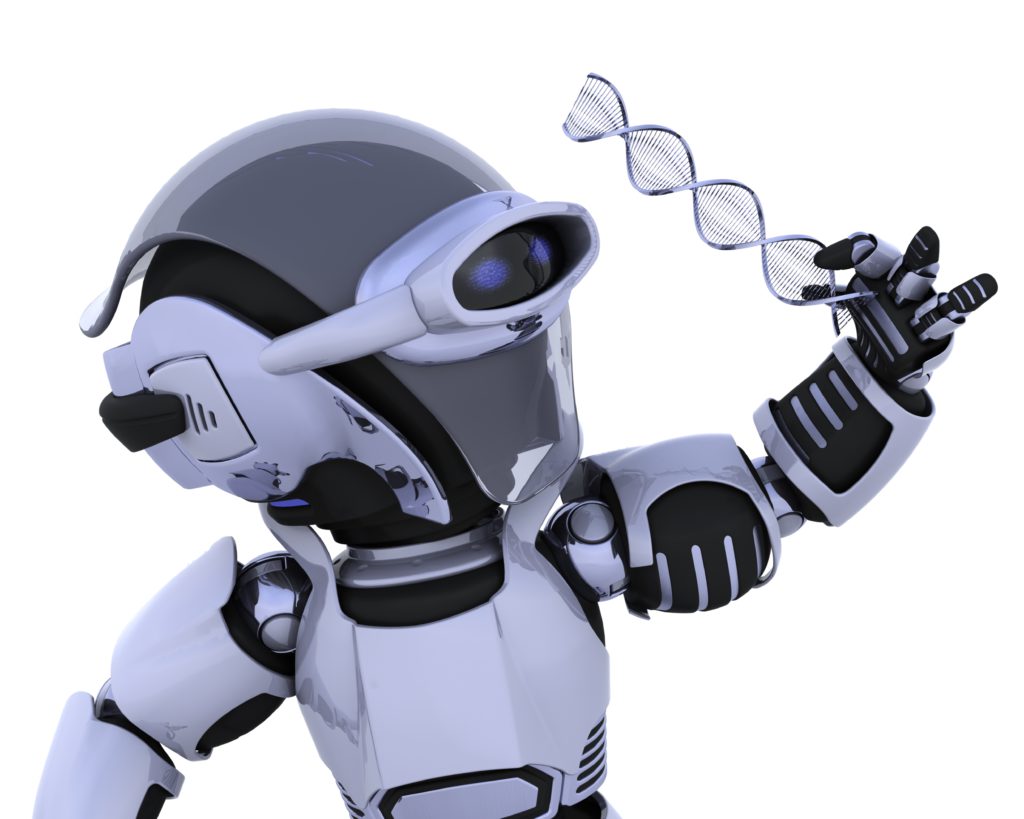Project Management
Adoption of AI in the health industry- A boon or bane?
- Surya Vamsi
- July 1, 2021

The advancements in the healthcare industry have provided better treatment as well as aftercare for individuals thereby increasing the overall life expectancy. However, with increasing longevity, there has been a tremendous rise in demand for healthcare services and the increasing necessity of the medical workforce to meet the rising demands. With this being a global scenario, employing AI in the health industry as a helping hand can not only reduce the strain on the health professionals but also provide better efficiency and consistency.
AI with its capability to sophisticate the most complex of tasks and its advanced machine learning and data analytics accelerating the processes to microseconds has made it a wagon towards the modernized and automated world. Considering the accuracy and precision of AI systems, their application in the field of health and the medical industry has no bounds.
AI in Health Industry
While there are numerous ways in which AI has been a game-changer in the health sector, few of them can be listed out as follows-

Diagnosis and Decision Making
AI has the potential to offer better insights and results compared to conventional analysis of data. With algorithms generating accurate and precise outcomes, AI can provide a peep into the actual underlying disease or symptoms helping to narrow down the process of diagnosing and treatment possibilities.
AI can store vast amounts of case studies, training data, results, analysis, and records of previous cases which helps match the symptoms and data to a particular data set resulting inaccurate diagnosis. This database can also help detect the underlying disease even before the patient develops the obvious symptoms.
AI has the capability to spot signs of certain diseases through the analysis of medical images such as MRI, X-Ray, etc. Recent research has also proved that a neural network can be trained to detect lung cancer a lot earlier than trained radiologists.
To further support the application benefits of AI in diagnosis, the National Cancer Institute has published a journal that showed that AI had an accuracy of 95% in detecting breast cancers. Considering the numerous advantages AI has while detecting and diagnosing tumors, health startups have already begun incorporating AI to ensure more efficient results.
Interfacing between the mind and body
With many neurological diseases and syndromes incapacitating various individuals to speak, move or even interact with their surroundings, AI can help restore these functionalities through the concept of the Brain-computer interface (BCI). BCI is a communication pathway between an enhanced brain and an external device. These are often used to enable patients to perform various cognitive tasks and mapping activities coupled with various sensory functions.
BCI with its core principle engulfed with AI helps in decoding the neural reactions enforced when an individual tries to perform a cognitive function. The decoded information, assisting the person in generating a neural impulse through an external device thereby making cognitive and sensory-motor functions possible.
BCI is already being actively used in treating patients suffering from locked-in syndromes, strokes, Neuro disorders etc.
Radiology
With the advancement of technology, specialists are now relying on various non-invasive methods of detection like MRI, CT-Scan, X-Ray, etc. Although these are the leading pathways of diagnosis, there is still some diagnosis that relies on traditional methods like biopsies, etc.
AI has the potential to replace these lagging methods with automated and virtual alternatives that are non-invasive in nature requiring no tissue samples. This will help to prevent any possible infections. For starters, AI is already materializing virtual biopsies which use imagery and mapping techniques to analyze the tumors present.
Further employment of the AI can also enable automated analysis without any human interactions also driving up efficiency. Companies in a few countries like the US have already obtained approvals for AI platforms to interpret cardiac MRI images.
Drug Discovery
According to California Medical Research, it takes on an average 12 years for a drug to travel from the laboratory to the patient. With the drug pathway being so long, it incurs irrecoverable time as well as costs for the pharmaceutical companies. The lack of appropriate technology and advancement plays a crucial role in this scenario.

Most drugs are chemically synthesized molecules that attach to a specific target molecule of the microbe. To figure out the right molecules, researchers had to spend uncountable days analyzing large screens of molecules. AI with its unparalleled speed of processing the data can simplify this task and result in reducing both the time as well as the cost incurred.
Treatment and Patient Care
AI in the health industry can help professionals take a better-directed approach towards a patient considering all the potential threats and factors involved in a case. Depending on the requirement and feasibility, AI has the capability to devise a well-coordinated long-term as well as a short-term treatment plan for the patient.

Robots have been the cake of the decade revolutionizing surgery. From simple robots to complex surgical robots assisting the surgeons in the surgery, they are been increasingly used in laboratories, hospitals, physical therapy centers, etc to aid the patients. AI imbibed with technology is also giving spark to a new era wherein robots can converse with individuals suffering from mental disorders like dementia, Alzheimer’s, etc to keep their mind interactive and responsive.
Training
With the medical and healthcare industry led by elite professionals who mastered precision and accuracy, training forms a crucial part of the upcoming counterparts. AI with its capability to cross analyze the information and access a large pool of information, can throw challenges and experiences towards the trainees which humans simply cannot. AI in the health industry can therefore provide a qualified training curriculum to ensure better prospects.
Machine learning also facilitates the program to learn from the responses of the trainees thereby constantly stepping up the complexity and adaptability of the training course.
Examples of existing AI in medicine and healthcare
- IBM Watson employs an array of networks starting from AI, Blockchain technology, data, and analytics, etc to enable the digital transformation of their clients. Through these solutions, they assist hospitals, health organizations, research, and patients in providing a more robust, resilient, and streamlined data management.
- AI-Rad Companion is an AI-powered diagnostic tool that helps in quicker and more efficient processing of image datasets using algorithms. They take a step further in providing a summarised report focusing on the key interpretations and quantification of the results.
- PathAI is an AI-powered technology that aims to assist pathologists in making a rapid and accurate diagnosis for every patient. It also builds solutions to identify the patients who can be helped with novel therapies thereby making scalable personalized medicine a reality.
- Buoy AI is an AI-based chatbot that interacts with the patient regarding their symptoms. Following the AI-driven algorithms, it analyses the symptoms and helps in the diagnosis of the disease, and provides quick insight to the individual about the same. It can also provide the best care and right service options depending on the patient’s condition.
Challenges
With the boon usually comes the bane, AI has its share of challenges to address while considering its applicability in the healthcare industry. Few of them are-
- Privacy– With a complete profile of the patient including everything about his personal as well as medical information, it’s imperative to eye on the privacy of the information. With AI and technology prone to hacking and misuse, AI constantly faces the threat of compromising on the patient as well as the hospital information.
- Accuracy of the results– AI accurately predicts the outcome of a scenario depending upon its prebuilt schema and continuous adaptability. While the theoretical interpretation of this concept removes the place for any doubts and allegations, the practical approach towards it raises some serious ethical questions. The absence of an empathetic standing and a straightforward cause-effect approach of AI might not be invited by few if not many patients, making them contemplate the results obtained.
- Legal Challenges– While many nations are favoring the deployment of AI at various points in their healthcare system, a few nations are still against the deployment mentioning the legal requirements to be met. With the demanding task of bettering people’s lives, AI has to go through several legal frameworks before being fully operational.
Future of AI
With active scrutiny and constructive criticism surrounding AI at all times, the best bet for AI in the healthcare industry at present is to perform all its operations at an assistant level to the surgeons who still carry on the crucial tasks bearing responsibility for the patient’s life. Having AI manage all the processes and entire treatment of the patient might probably be a highly possible future endeavor but not a complete present reality.
